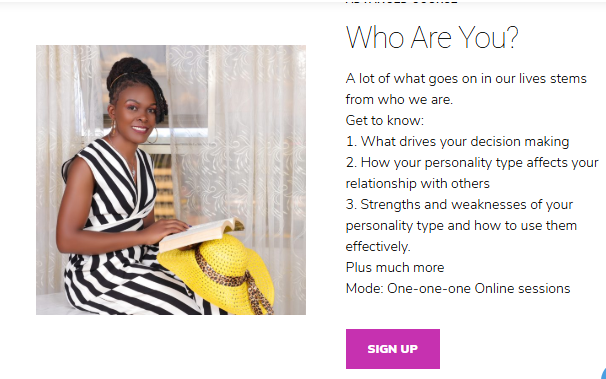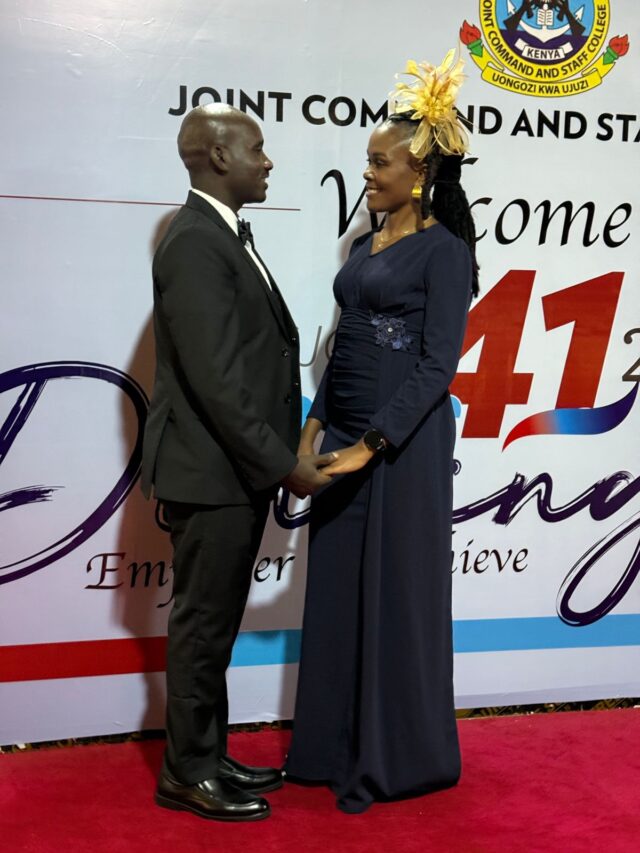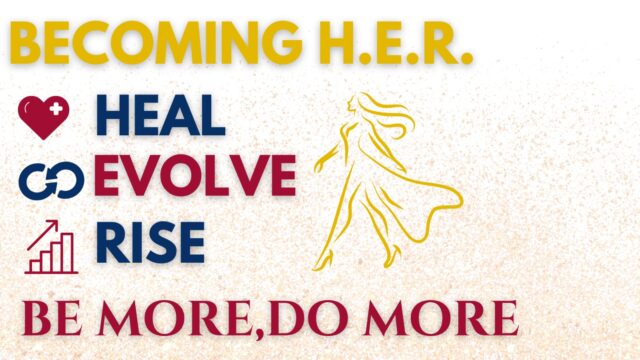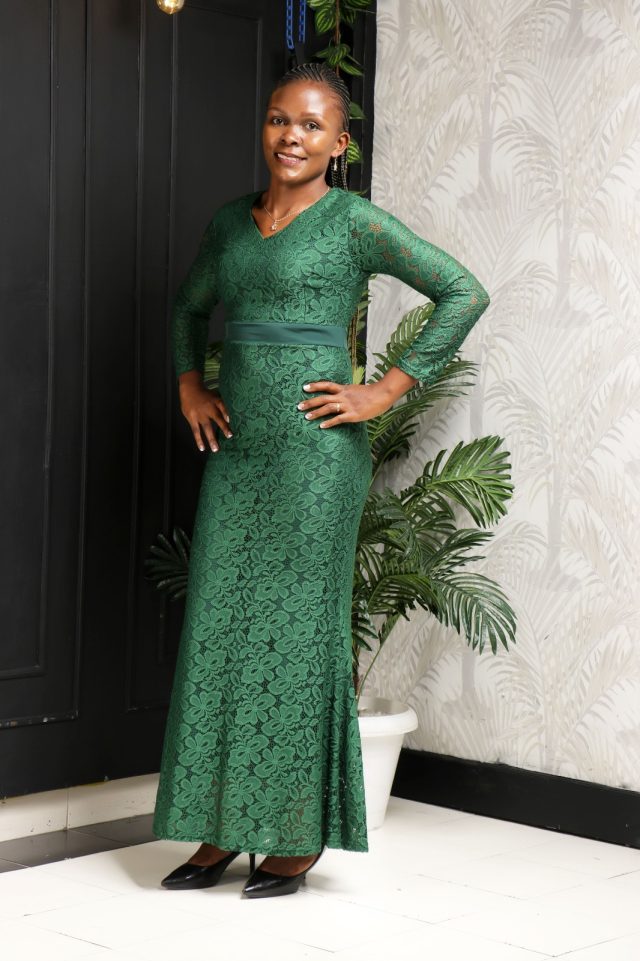“Marriage is this perfect institution, made up of two imperfect people who God continues to perfect along their journey in life with each other.”
Recently in Kenya, a trending slogan emerged that stated, “ndoa inabamba mafala”. The English translation of this is that “marriage entices fools”. That is to mean, everybody who thinks marriage is a happy institution is a fool. The question is, is this phrase true? Let’s look into it.
THE TRADITIONAL VIEW OF MARRIAGE
Traditionally, across many cultures, marriage was viewed as an essential stage in life. It was almost automatic to follow a particular pattern. You are born, get an education, get a job, get married, have children, nurture them, and then die. The cycle would then repeat itself. A lot happened in between, but these were the standard expectations. Girls and boys were prepared for marriage right from their formative years. Girls in particular were groomed for marriage at a tender age. With civilization, lots of emphasis was given to formal education. The girl child empowerment programs were on the rise. The view of marriage began to change from a ‘must
do’ institution to one of choice. However, it’s still interesting how society, especially the elders, worry and get concerned when one gets past 30 years of age while still single.
Then came gender equality. Men and women began to fight for equal rights and representation in every sector of life. Girls became more aggressive in occupying spaces that were previously male-dominated. Values began to change. From the traditional stay-at home mums, girls were empowered to work and fend for themselves and their families.
From the initial role of men as providers, women could now chip in. With these developments, women refused to settle for the traditional duties. They wanted more. This was a positive development, but it came along with its own set of challenges and conflicts. The man’s position as a leader in the family was on trial. Remember, this is a mindset challenge, from how we are wired to view marriage to accepting the new developments.
The question that couples need to ask themselves is,
- Are they clear about their responsibilities as husbands and wives?
- Are they willing to assist each other in fulfilling them?
WHY ARE MARRIAGES FAILING?
Many factors contribute to the failure of marriages. We will discuss a few.
Lack of preparedness –
Most people get into marriage unprepared, and others for the
wrong reasons. Some are too young and immature to handle the challenges that come
with marriage. Teenagers, for instance, may get married in pursuit of passion, then face
insurmountable challenges. Sex is one of the wrong reasons many get married. They
quote St Paul’s words from the bible and say that it’s better to marry than to burn with
lust. Unfortunately, shortly after marriage, the one thing that attracted them to
marriage becomes less desirable. It becomes a primary source of conflict. We hear of
couples scheduling sex for specific times of the week or months. The couple that ‘fell in love’ begins to ‘fall out of love’.
The truth is that sex and passion cannot hold a marriage together. More is needed to glue a couple together.
Lack of commitment and resilience –
In the wedding vows, we say,
“for better for worse, for richer or poorer, in sickness and in health, till death do us part.”
The question is, do couples mean these words when they say them?
At the sight of the first conflict, most couples begin to contemplate a way out.
The word ‘divorce’ is mentioned within the first few months or within the first year of marriage.
Couples are less committed to finding lasting solutions to the conflicts they face. They give up so fast.
Commitment means making divorce the very last resort after trying every other way to
make the marriage work. Are couples trying enough?
Marriage can only work when both spouses ‘deep both legs’ in their union and decide to make it work. This means
that they are both committed to seeking lasting solutions to their challenges.
For a marriage to flourish, husband and wife must move from “me versus you” to “us against
the problem,” united in purpose and vision. It takes each of them to resolve in their
hearts that they are willing to put in the required work to see their marriage work. The
concerted efforts often bear fruit.
Unforgiveness –
It is said that marriage is made up of two forgivers who are willing to
forgive each other again and again without keeping a record of wrongs. For a marriage
to work, couples have to learn to practice unconditional love and forgiveness. True
growth in marriage begins when couples see each other as human, imperfect, but
evolving. When they can talk honestly about their shortcomings, forgive, and let go,
healing begins to flow.
Selfishness –
Most people get into marriage thinking of what they will receive from their
spouse. They think, “He will do this for me” or “she will do this for me.” The two come
together as receivers, not thinking about what they are to give, at times, sacrificially.
They soon realize that the expectations they had were unrealistic. A great marriage is
made of two givers who are out to give their best to each other. Every day, they look
forward to sacrificially loving and contributing towards the betterment of each other
and their marriage. They both feel loved and cared for.
Are you a giver or receiver?
What could you give that would make a difference?
Distorted beliefs and unhealed childhood traumas –
Most of us grow up within some kind of family setup.
It could be a nuclear family, a single-parent home, with
grandparents, guardians, or through adoption. Some children are raised in foster care or
children’s homes, especially those who have been orphaned or abandoned.
Each of these family setups forms a child’s early beliefs about love, family, and marriage,
quietly shaping what they come to expect from relationships.
For example, a child who didn’t grow up in a nuclear family may not be privileged to know how an ideal family operates.
The boys lack a father figure to model for them what a father and husband are. The
girls, too, lack a mother figure to model for them what a good mother and wife should
be. This in itself is a setup for a crisis.
Some children grow up in abusive homes. All their lives, they are exposed to violence,
which becomes part of their subconscious programming.
Even though they genuinely desire to be great spouses and raise thriving families, their subconscious
beliefs and the
patterns they’ve been exposed to over time keep pulling them back. When a child
grows up in violence, their nervous system learns survival, not peace. So even in calm
spaces, they may unconsciously recreate the storm they once knew.
Unfortunately, many do not prioritize seeking help from professionals. They get into
marriage unhealed and perpetuate the same painful patterns they grew up in. This is a
hard truth because, as much as help is available, lack of awareness and ignorance keep
many in bondage. The patterns are perpetuated from one generation to another.
Abuse –
This comes in many forms. Emotional, financial, spiritual, physical, etc. One
spouse may inflict abuse on the other till it can no longer be tolerated, resulting in
divorce and separation. We have seen cases of violence and brutality in marriages on
social media. More go unreported. On the extreme, they result in death.
Personality differences –
In my practice as a life coach, I see a lot of this when working
with couples. Two people come together in marriage whose personality types are either
similar or very different. When there’s no awareness of how to turn their differences
into strengths, they begin to fight over the very things that make them beautifully
unique. Personality differences are meant to complement each other. Awareness of this
can save a marriage from sinking into destruction.
Would you be interested in taking a personality test with us?

Unexpected occurrences and events in life –
Individuals have something that makes
them attracted to the spouses they get married to. Unfortunately, life is very
unpredictable. We all dream of that fairy tale of ‘happily ever after,’ but that’s not
always the case. Death of parents, loss of income for either or both spouses, loss of a
child, transitions, physical distance, body changes, disability where either spouse or
child loses part of their body or part of five vital senses (hearing, speech, sight), and
much more. Some result in blame games. It all circles back to commitment and
resilience. Marriage isn’t just about joy and ease. It’s about choosing each other
through the storms. Without a “till death do us part” mindset, it becomes hard to
endure challenges. True strength is found in walking together, crying together, and
healing together.
Poor or lack of communication –
This is actually the number one cause of separation
and divorce. It wraps up all the other factors. Most couples do not clearly communicate
their expectations and needs. They have a silent expectation that their spouse should
automatically know their needs. They forget that their spouse has needs, too. Couples
need to learn to communicate effectively, talking as well as listening to each other in a
non-judgmental way. As long as an issue matters to one spouse, it should matter to the
other.
Other factors include
o Financial issues – the declining economy affects families negatively
o Lack of intimacy – Growing apart emotionally, spiritually, and physically
o Lack of trust – When trust is broken, it becomes difficult for many marriages to
recover

WHAT IS THE DIVINE PLAN FOR MARRIAGE?
In God’s mind, marriage was meant to be ‘for keeps’, till death. In the bible, God says, “I hate divorce”.
Studies show that divorce brings immense pain to the couples involved. Children often feel lost in the midst of conflict and disagreements, which can deeply affect their sense of identity and emotional stability. Research also indicates that a significant percentage of children from broken families struggle with self-esteem, trust, and forming healthy relationships later in life.
Couples, therefore, need to seek help before they finally decide to part ways. In cases of abuse and threats to life, separation is advisable. With intentionality, problems can be solved.
HOW CAN COUPLES EVADE DIVORCE?
i. Seeking premarital counselling/coaching – Most churches offer structured
premarital counselling before weddings. However, not all do. It’s crucial to make
this step compulsory. The assumption that we know how to run marriages is
ruining lives.
Professionals like life coaches and counsellors offer valuable support in this area.
Every couple preparing for marriage should prioritize individual healing before
walking down the aisle. It’s a necessary step to avoid repeating painful patterns
from the past. Holistic wellness should no longer be optional – it must become a
core part of premarital preparation.
ii. Understanding seasons of marriage – Just like we have climatic seasons,
marriage also goes through seasons. In Gary Chapman’s book, “The 4 Seasons of
Marriage”, he says that marriage goes through all 4 seasons. Winter, spring,
summer, and fall. Some seasons are blissful and joyful, while others are not.
Unless couples understand this, they will resort to divorce at the slightest change
in seasons
iii. Communication – This is key in marriage. Active communication involves having
open conversations and active listening. Spouses need to feel that they are not
condemned and judged for them to open up. This calls for maturity and
unconditional love.
iv. Making God the center of your marriage – Marriage is a trinity made of God,
husband, and wife. God is the author of marriage. When couples align their
relationship with His design, they build on a foundation that can withstand any
storm. Without Him, it’s impossible for marriage to work. The marriage
institution has been under constant attack. Being the basic unit of every
community, if marriages are shaken, nations are shaken. Prayer, therefore,
needs to be a central part of marriage because couples need divine help to
thrive. His idea was never for couples to survive, but to thrive.
IS MARRIAGE A SCAM?
The tending phrase, “Ndoa inabamba mafala’ sprouts from pain, anger, and disappointment. The originator of the phrase must have experienced or seen some form of pain in marriage and concluded that anyone who loves marriage is a fool.
The truth is that countless happy couples defend and stand for marriage. They have definitely gone through their own share of shake-ups, trials, and have stood the test of time.
Couples must walk into marriage informed and intentional. Investing in programs, seminars, books, and growth-oriented communities helps them build emotional intelligence, deepen understanding, and strengthen their bond. Marriage thrives when both partners commit to learning and evolving together.
CONCLUSION
Marriage is a divine idea, and divine ideas are never mistaken. It brings together two incomplete and imperfect individuals who are refined, healed, and perfected in the process. It’s within marriage that we often discover who we truly are. This sacred union exposes our true selves, not to shame us, but to heal us. Each spouse must choose: to allow themselves to be seen and transformed, or to keep hiding their pain, trauma, and weaknesses, only to end up more broken. At our core, we are wired for connection. We crave intimacy, love, and belonging, not out of weakness, but because that’s how God designed us. People will keep entering marriage, but the difference between struggle and fulfillment lies in doing marriage God’s way, not our own. Change starts with you and me. Every thriving marriage is built by two people who choose to grow, forgive, and love intentionally.
What will you do differently today to shift your marriage from survival to thriving?
At Abby’s Holistic Wellness Hub, we offer couples’ coaching programs designed to help you heal, reconnect, and build a marriage that flourishes.
Consider signing up today and begin your journey toward lasting love and growth.
Remember, God created marriage as perfect, and marriage becomes truly beautiful when done His way.



